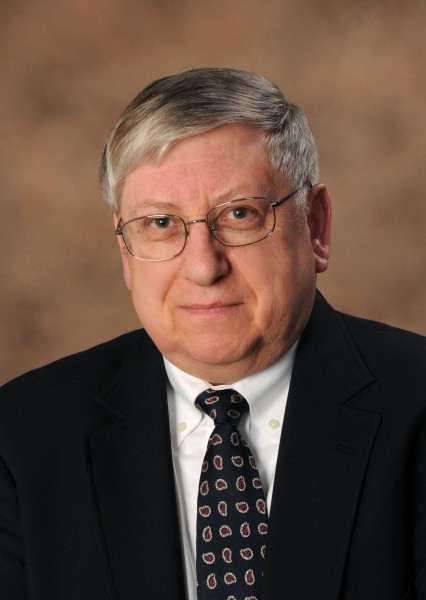Lawson Brigham adds global perspective to SNRE
September 23, 2014

Nancy Tarnai
907-474-5042
9/23/14
Lawson Brigham, University of Alaska Fairbanks distinguished professor of geography and arctic policy, is dedicated to researching arctic policy centered on natural resources management.
“I focus on the ocean side,” he said.
Brigham travels the world representing ĐÔÓűÉç; he is a solid connection to Washington, D.C., and brings in research grants, including from the National Science Foundation.
The Cambridge-educated professor concentrates on policy for the Bering Strait region, working with teams to analyze data and plan how to manage resources through a complexity of systems to protect people and the environment.
Brigham serves on the Alaska Arctic Policy Commission, made up of legislators and citizens, representing the University of Alaska on research climate change issues. He also serves on the U.S. International Maritime Organization (a United Nations committee) and works on the Stanford University Arctic Security Initiative.
“Arctic climate change is profound,” Brigham said. “And geopolitics are very complicated in the Arctic.”
Brigham strives to link natural resources to global markets, ensure that indigenous people’s rights are protected and to protect marine navigation legal rights. His background as a U.S. Coast Guard captain is an invaluable asset to his current work. “It’s key to have maritime experience,” he said. “It gives a practical bridge between maritime policy and academics. It merges the practical and theoretical.”
One of Brigham’s most visible projects lately has been the Polar Code, a mandatory code for ships operating in polar waters. It addresses the risks specific to operations in polar waters, taking into account the extreme environmental conditions and the remoteness of operation. The code will address ships’ construction standards, safety equipment and requirements for qualified ice navigators.
“This will be a new set of regulations for ships in the Arctic and Antarctic,” Brigham said. “It’s been 20 years in the making and means a new regime for arctic shipping.”
This excerpt from , reveals the crux of the matter.
“Today, there are just a handful of people in the world with the appropriate training and skills for safe navigation in polar waters, he explained at a recent in Seattle. The meeting was sponsored by the U.S. Coast Guard, which is the country's representative to the , an agency of the United Nations that sets standards for the shipping industry.
“Within years, Brigham said, "throughout the United States maritime market we may have Statoil, Shell, (and) Conoco Phillips all with their armada of ships with hundreds of vessels and thousands of transits (in the Arctic).The question is: What is the competency of the people in the pilot house?"
Brigham’s travels for the World Economic Forum Global Agenda Council on the Arctic have taken him as far as Dubai, a highlight of his career, Brigham said. He is looking forward to returning there this fall.
Of all the publications Brigham has helped publish, he is quick to point out one of his favorites, a WEF report that seeks to combat misinformation presented by the media over the years.
Part of the report is a page called “Arctic Myths,” which explains the facts behind such illusions as:
- The Arctic is an uninhabited, unclaimed frontier with no regulation or governance.
- The region’s wealth of natural resources is readily available for development.
- The Arctic will become immediately accessible as sea ice continues to disappear.
- The Arctic is tense with geopolitical disputes and is the next flashpoint for conflict.
- Climate changes in the Arctic are solely of local and regional importance.
Brigham was at the table at a NATO committee meeting held recently at ĐÔÓűÉç. “I spoke on arctic natural resources, shipping and arctic maritime enterprise,” he said.
His job requires the ability to communicate complex issues regarding the Arctic. “I’ve been dealing with Arctic issues for decades and communicating to a global audience,” he said.


